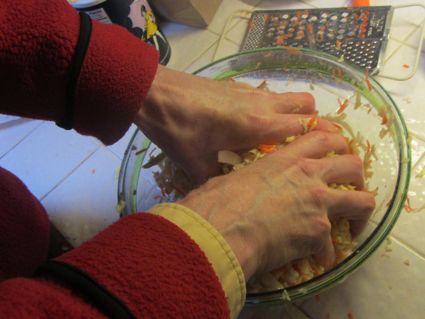When Max Planck turned sixty, he was honored by the Physical Society of Berlin. Several scientists gave short talks in his honor, including Emil Gabriel Warburg, Max Von Laue, Arnold Sommerfeld, and Albert Einstein.
Einstein spoke about the motives for engaging in scientific research, “Motive de Forschung.” He said that some people take to science out of a sense of superior intellect, some as a kind of sport, some out of ambition, some for utilitarian purposes. But, said Einstein, some people — including Planck himself — engage in scientific research out of a very different motive:
I believe with Schopenhauer that one of the strongest motives that leads men to art and science is escape from everyday life with its painful crudity and hopeless dreariness, from the fetters of one’s own ever shifting desires. A finely tempered nature longs to escape from personal life into the world of objective perception and thought; this desire may be compared with the townsman’s irresistible longing to escape from his noisy, cramped surroundings into the silence of high mountains, where the eye ranges freely through the still, pure air and fondly traces out the restful contours apparently built for eternity.
And there are many people like this in our liberal congregations: finely tempered natures who need to range through pure air and look into eternity.
In the next paragraph of the talk, Einstein went on to explain that this motive for doing scientific research is not simply a negative one of escapism:
With this negative emotion there goes a positive one. Man tries to make for himself in the fashion that best suits him a simplified and intelligible picture of the world; he then tries to some extent to substitute this cosmos of his for the world of experience, and thus to overcome it. This is what the painter, the poet, the speculative philosopher, and the natural scientist do, each in his own fashion. Each makes this cosmos and its construction the pivot of his emotional life, in order to find in this way the peace and security which he cannot find in the narrow whirlpool of personal experience. [Bibliographic information below.]
And again, there are many people in our liberal congregations who engage in religion for the same motive: like the poet and the painter, these are people who do religion the way an artist does art, to help make sense out the world. Among religious liberals, this motive does not impel people to replace science with religion, any more than religious liberals would try to replace painting with poetry. Religion, especially I think for those who are mystics, can be another way to make sense of the world, to look into eternity, to place oneself in the context of the cosmos.
Of course there are other motives for doing religion, just as there are other motives for doing science. Many religious liberals conceive of religion in utilitarian terms: religion is a way to promote justice, religion is way to build social capital, and so on. But there are also the poets and painters and scientists among us, who want to look into eternity and seek to understand our places in the cosmos.
———
Bibliographic information: Albert Einstein, “Principles of Research,” 1918, address delivered at a celebration of Max Planck’s sixtieth birthday to the Physical Society, Berlin. Published in German in a collection of essays: Emil Gabriel Warburg. Max Von Laue, Arnold Sommerfeld, Albert Einstein, and Max Planck, “Zu Max Plancks Sechzegstem Geburtstag; Ansprachen, Gehalten Am 26. April 1918 in Der Deutschen Physikalischen Gesellschaft” (Karlsruhe; Müller, 1918). Reprinted in: ed. Carl Seelig, Mein Weltbild (1934, 1953). Published in English: ed. Carl Seelig, trans. Sonia Bargman, Ideas and Opinions (New York: Crown Publishers, 1954). The complete text of the English translation of this talk is available online, among other places, here.

